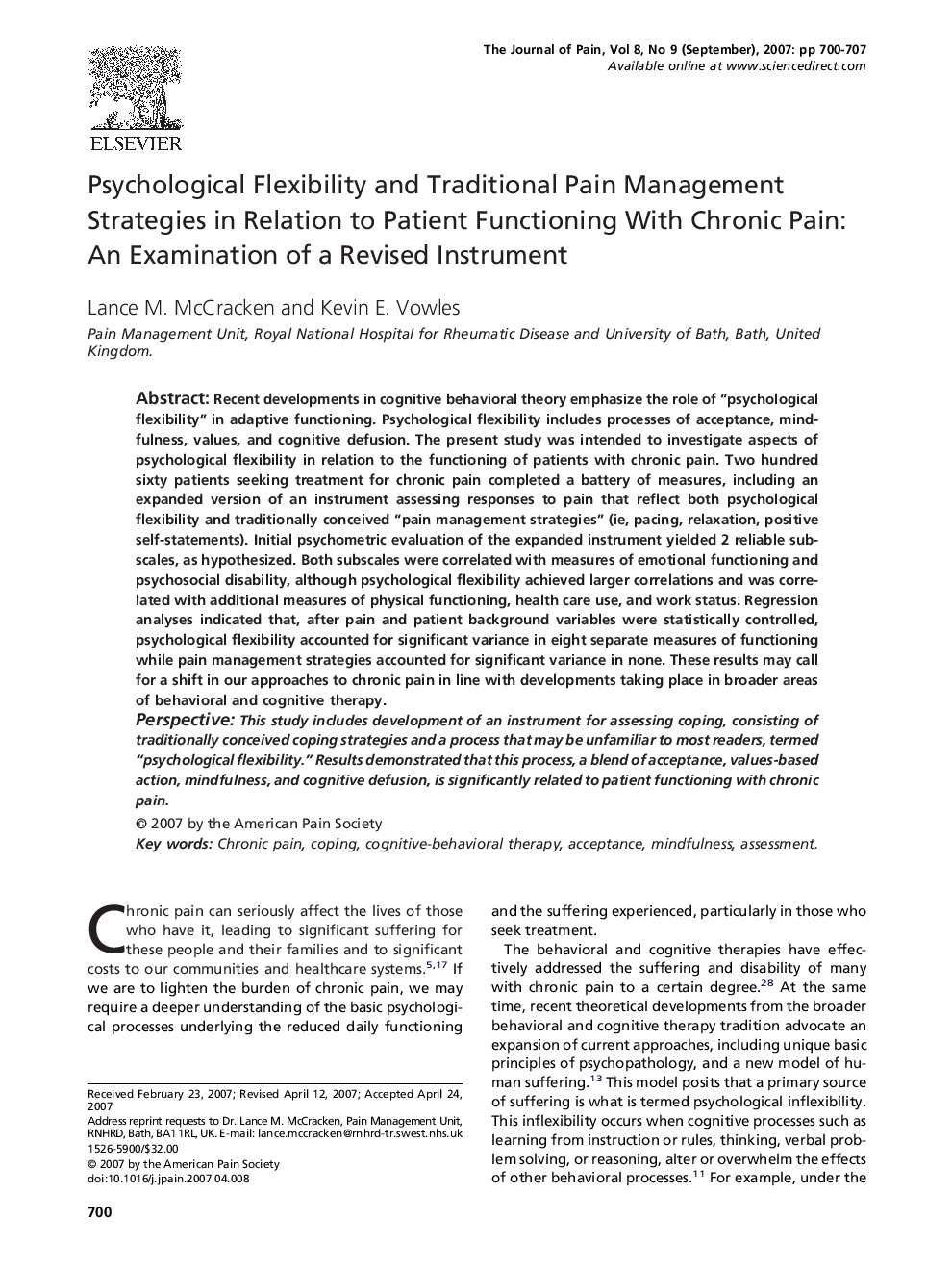| Article ID | Journal | Published Year | Pages | File Type |
|---|---|---|---|---|
| 2735166 | The Journal of Pain | 2007 | 8 Pages |
Recent developments in cognitive behavioral theory emphasize the role of “psychological flexibility” in adaptive functioning. Psychological flexibility includes processes of acceptance, mindfulness, values, and cognitive defusion. The present study was intended to investigate aspects of psychological flexibility in relation to the functioning of patients with chronic pain. Two hundred sixty patients seeking treatment for chronic pain completed a battery of measures, including an expanded version of an instrument assessing responses to pain that reflect both psychological flexibility and traditionally conceived “pain management strategies” (ie, pacing, relaxation, positive self-statements). Initial psychometric evaluation of the expanded instrument yielded 2 reliable subscales, as hypothesized. Both subscales were correlated with measures of emotional functioning and psychosocial disability, although psychological flexibility achieved larger correlations and was correlated with additional measures of physical functioning, health care use, and work status. Regression analyses indicated that, after pain and patient background variables were statistically controlled, psychological flexibility accounted for significant variance in eight separate measures of functioning while pain management strategies accounted for significant variance in none. These results may call for a shift in our approaches to chronic pain in line with developments taking place in broader areas of behavioral and cognitive therapy.PerspectiveThis study includes development of an instrument for assessing coping, consisting of traditionally conceived coping strategies and a process that may be unfamiliar to most readers, termed “psychological flexibility.” Results demonstrated that this process, a blend of acceptance, values-based action, mindfulness, and cognitive defusion, is significantly related to patient functioning with chronic pain.
